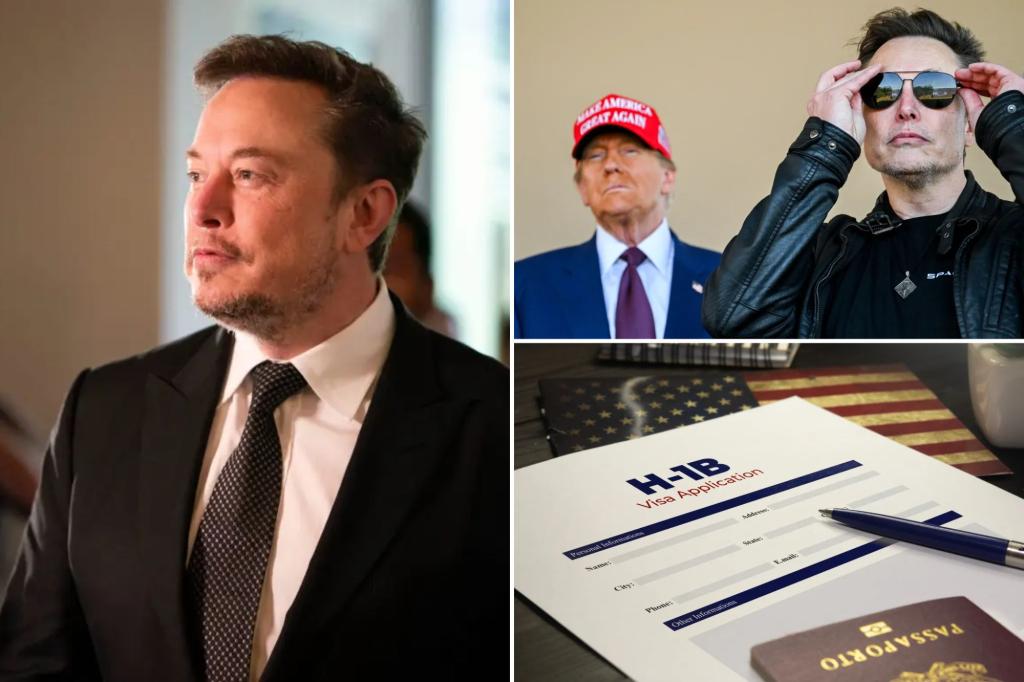The H-1B visa program, designed to allow American companies to hire foreign workers in specialized occupations, has become a contentious point of debate within the Republican party, particularly between tech industry leaders and more nationalistic factions. Former President Trump, despite previously implementing restrictions on the program during his first term, has recently expressed support for H-1B visas, aligning himself with figures like Elon Musk who argue for the program’s importance in attracting highly skilled talent. This stance has sparked clashes within the MAGA movement, with some hardliners advocating for stricter immigration policies and prioritizing American workers.
Trump’s renewed endorsement of the H-1B program stems from his belief that it benefits American businesses and contributes to economic growth. He has cited his own companies’ utilization of the program as evidence of its effectiveness, emphasizing the need for access to specialized skills not readily available within the domestic workforce. This perspective resonates with tech industry leaders who argue that H-1B visas are crucial for maintaining American competitiveness in a globalized market. They contend that restricting access to foreign talent could stifle innovation and hinder economic progress.
However, this viewpoint faces opposition from within the MAGA movement, particularly from those who prioritize protecting American jobs and limiting immigration. These critics argue that the H-1B program is often abused, leading to displacement of American workers and suppression of wages. They advocate for stricter regulations and increased scrutiny of applications to ensure that the program serves its intended purpose without negatively impacting American workers. This internal conflict highlights the tension between prioritizing economic competitiveness and addressing concerns about job security for American citizens.
The debate intensified following a public exchange between Elon Musk and critics of the H-1B program. Musk, a prominent advocate for expanding the program, vehemently defended its importance, citing the contributions of H-1B visa holders to American companies like Tesla and SpaceX. He argued that attracting top engineering talent from around the world is essential for maintaining American innovation and global leadership. This stance drew criticism from some MAGA figures who accused Musk of prioritizing corporate interests over the well-being of American workers. The ensuing online spat highlighted the deep divisions within the Republican party regarding immigration policy.
Musk’s passionate defense of the H-1B program sparked a backlash from some prominent figures within the MAGA movement, including Steve Bannon, who publicly mocked Musk’s stance. This further fueled the internal conflict within the Republican party, with some accusing Musk of being out of touch with the concerns of working-class Americans. The escalating tensions underscore the challenge faced by the Republican party in balancing competing interests and formulating a cohesive immigration policy that addresses both economic and social concerns.
While Trump’s endorsement of the H-1B program aligns him with the tech industry’s perspective, it also puts him at odds with some of his core supporters who advocate for stricter immigration controls. This internal division within the Republican party reflects a broader debate within American society regarding the role of immigration in economic growth and national identity. The future of the H-1B program and broader immigration policy will likely remain a contentious issue, requiring careful consideration of competing perspectives and potential consequences for both American workers and the overall economy. The debate also raises broader questions about the value placed on skilled labor, the role of education in preparing the domestic workforce, and the long-term impact of immigration on American society.

